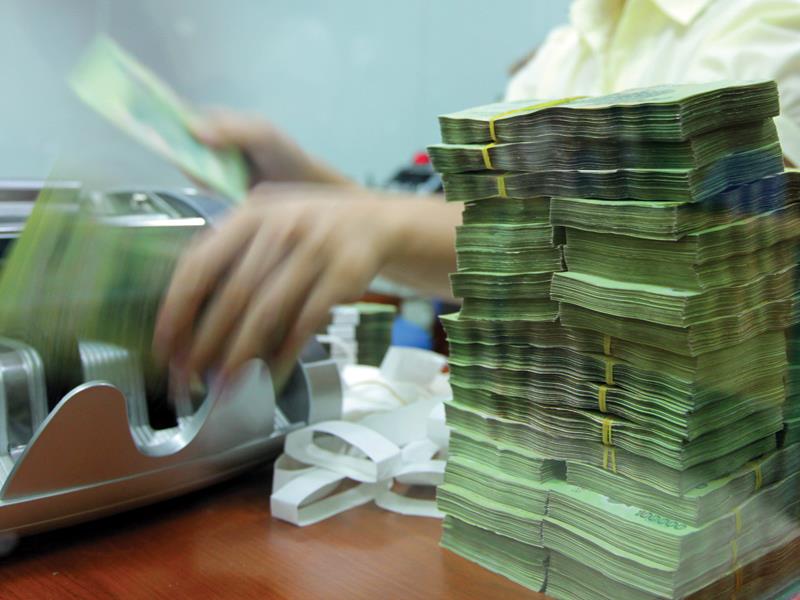Vietnamese banks dream of foreign investors
 |
Voracious foreign investors
Only a few banks in Vietnam have not sold shares to foreign investors. These are mainly banks going through restructuring, such as Saigon Bank, BacA Bank or VietA Bank.
Vietnam Prosperity Bank (VPBank) and Saigon Commercial Bank (Sacombank) are currently seeking new foreign investors after parting with their previous foreign shareholders. The initiative came about as a result of Singaporean Oversea-Chinese Banking Corporation (OCBC) and ANZ Corporation selling nearly 10 per cent of Sacombank's shares.
After Ho Chi Minh City-based Sacombank acquired Southern Bank, Singaporean United Overseas Bank (UOB), which previously owned 20 per cent of Southern Bank shares, now owns only 3.18 per cent of Sacombank. Therefore, the "room" for foreign ownership, a common term referring to the percentage of shares foreign investors can buy until hitting the government-imposed limit, remains large at Sacombank.
Kieu Huu Dung, chairman of the board of directors at Sacombank, said one foreign investor has expressed willingness to pour $1 billion into the bank and another domestic investor wants to buy a 20 per cent stake at VND15,000 per share, twice its current market price.
Vo Tan Hoang Van, general director of Saigon Bank (SCB), said that after restructuring the bank plans to seek further foreign investment and this direction has received approval (from?). Currently, SCB is negotiating with a number of foreign partners.
According to Van, a large number of foreign partners want to invest in SCB, but it will take time to find a strategic partner who shares the banks vision and goals.
Foreign investors have approached Ho Chi Minh City Development Bank (HDBank) and VPBank, but leadership at these banks turned them away, saying they were studying options and negotiating and may be willing to strike deals in the near future, either before or after listing their stocks on the exchange.
Under the current rules, foreign ownership in Vietnamese banks is limited to a maximum of 30 per cent, and each foreign investor is restricted to own a maximum of 20 per cent. Therefore, banks that have already received foreign investment have less "room” left for additional foreign investors after being listed.
For example, Vietnam International Bank (VIB) sets its foreign investment "room" at 20.5 per cent. Because the bank's strategic partner, Commonwealth Bank of Australia, is already holding 20 per cent, the chance that more foreign investors could buy VIB shares is quite low
Military Bank (MB) has previously restricted foreign investment to 10 per cent because it wanted to reserve some "room" for strategic foreign investors. However, in February 2016, the bank's foreign investment limit was raised to 20 per cent and the new "room" was quickly filled. That means foreign investors have big appetite for Vietnamese banks, but face ownership restrictions.
Hoping to raise the cap
Don Lam, founder of VinaCapital, Vietnam's largest fund manager, said the restructuring of the Vietnamese banking system is a topic of interest for foreign investors. He said during this stage, there are more opportunities to invest, especially when the Vietnamese government allows the 100 per cent purchase of weaker banks. However, this does not guarantee a successful deal, just as GPBank was not able to sell 100 per cent to UOB in order to start restructuring. Until now, the State Bank of Vietnam has restructured the nine weakest banks, but it is still difficult for foreign investors to wholly own a domestic bank.
Many commercial banks have already hit the foreign ownership limit. Therefore, they have expressed the desire for bigger "room" for foreign investment in order to raise capital, resolve bad debts, and speed up restructuring. The new cap suggested by major banks is 35-40 per cent, whereas smaller banks are suggesting 49 or 51 per cent. Meanwhile, foreign investors are also recommending raising the foreign ownership limit to 50 or even 65 per cent.
During the 2011-2015 period of restructuring commercial banks, mergers and acquisitions have been the main solution to helping weak banks. But this approach might no longer be the favourite because post-merger banks have more capital, wider networks, and more human resources but also face increased operating costs and higher bad debts ratios. Therefore, Dr Nguyen Tri Hieu, financial and banking expert, said expanding the "room" for foreign shareholders is also a solution, because with the current 30 per cent limit, foreign investors still do not have a voice in the board of directors in Vietnamese banks.
| RELATED CONTENTS: | |
| FOLs will help banks revamp | |
| More foreign ownership in banks? | |
| Vietnam preps for borderless market | |
| Banks await lift in foreign ownership | |
What the stars mean:
★ Poor ★ ★ Promising ★★★ Good ★★★★ Very good ★★★★★ Exceptional
Latest News
More News
- Cashless payments hit 28 times GDP in 2025 (February 04, 2026 | 18:09)
- SSIAM and DBJ launch Japan Vietnam Capital Fund (February 04, 2026 | 15:57)
- Banks target stronger profits, credit growth in 2026 (February 04, 2026 | 15:43)
- Vietnam on path to investment-grade rating (February 03, 2026 | 13:07)
- Consumer finance sector posts sharp profit growth (February 03, 2026 | 13:05)
- Insurance market building the next chapter of protection (February 02, 2026 | 11:16)
- NAB Innovation Centre underscores Vietnam’s appeal for tech investment (January 30, 2026 | 11:16)
- Vietnam strengthens public debt management with World Bank and IMF (January 30, 2026 | 11:00)
- Corporate bond market poised for stronger growth cycle (January 28, 2026 | 17:13)
- Vietnam's IPO market on recovery trajectory (January 28, 2026 | 17:04)
















 Mobile Version
Mobile Version